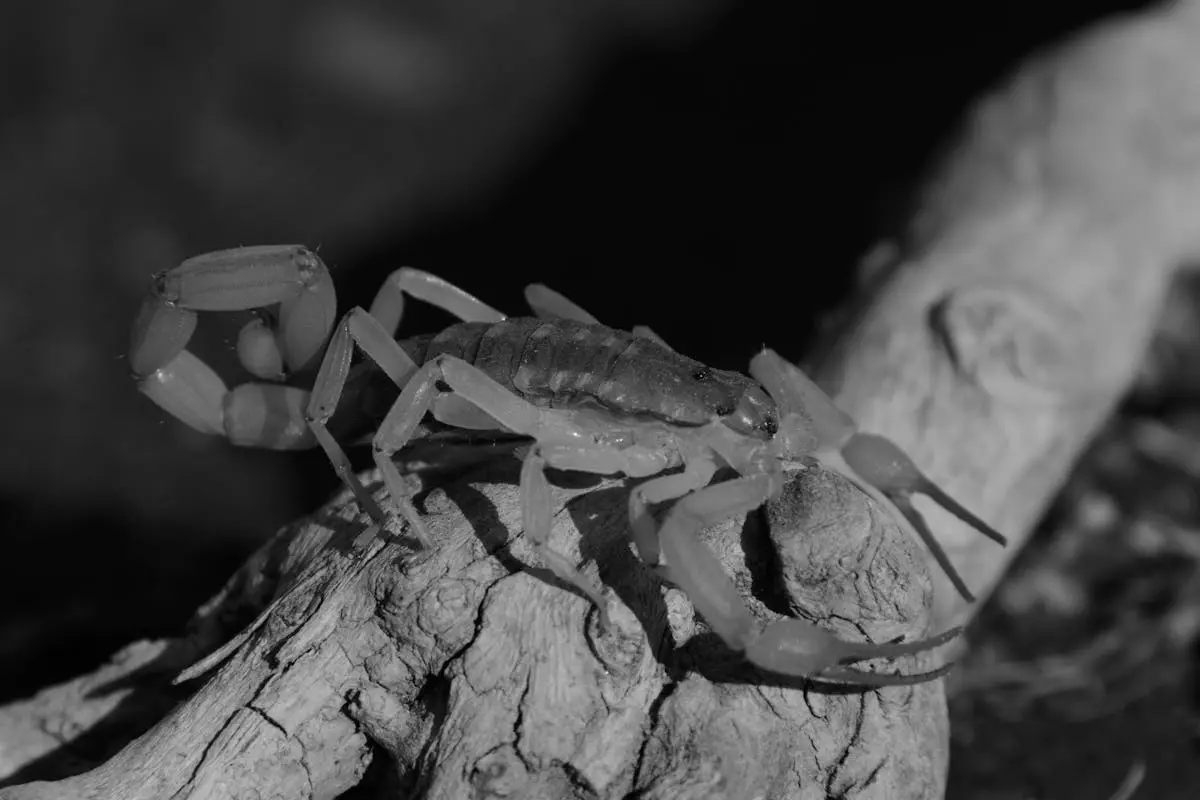Introduction to Residential Pest Control: Why It’s Essential
Think of your home as a fortress. It’s your safe space. But like any fortress, it sometimes faces invaders. Here, the enemies are pests—unwanted guests that sneak into your space. Why worry about these tiny invaders? Well, pests like rats, cockroaches, and termites aren’t just annoying. They’re harmful. They can spread diseases, trigger allergies, and even damage your home’s structure. This is where residential pest control swings into action. It’s not just about getting rid of pests after they’ve made themselves at home. It’s about keeping them out in the first place. Imagine a shield around your fortress, keeping the bad guys out. That’s what pest control does. It’s essential for maintaining a healthy, comfortable, and safe living environment. It’s not a luxury; it’s a necessity. Regular pest control means fewer health worries, less damage, and maintaining the value of your home. It’s about peace of mind. So, give your home the protection it deserves. Keep those uninvited guests out.
Common Household Pests and Their Health Risks
Dealing with pests is a major headache for many homeowners. Let’s talk about some of the usual suspects you might find creeping around your home and why they’re not just annoying, but also harmful to your health. First up, cockroaches. These critters are not only unpleasant to look at but they also spread diseases by carrying bacteria around your home. They can trigger asthma and allergies, especially in kids. Next, we have rodents like mice and rats. These pests can chew through almost anything, and they’re known to spread serious diseases like Hantavirus and Salmonella. They can also create fire hazards by gnawing on electrical wires. Another common unwanted guest is the bed bug. While they don’t spread diseases, their bites can cause itching and sleepless nights, leading to stress and anxiety. Then there are mosquitoes, which might be small but are incredibly dangerous because they can carry and transmit diseases like Zika virus, West Nile virus, and malaria. Lastly, ants, though often considered less harmful, can contaminate your food by carrying bacteria into your pantry. In sum, these pests can wreak havoc not just on your peace of mind but on your health too. It’s crucial not just to get rid of them but to keep them from coming back.
The Role of Regular Pest Control in Preventing Infestations
Regular pest control plays a crucial part in keeping homes free from unwelcome guests like insects and rodents. Think of it as routine maintenance for your house – just like you’d service your car to prevent breakdowns, you treat your home to avoid pest infestations. By having professionals check your home regularly, they can spot the early signs of pests, often stopping them in their tracks before they become a bigger issue. This preventive approach is key because once pests establish themselves, getting rid of them becomes harder and often more expensive. Regular pest control means less use of heavy chemicals in your home, as treatments are more targeted and smaller in scale. In essence, it’s about nipping the problem in the bud; dealing with pests early on keeps your home healthier and saves you from larger headaches down the line.
How Pest Infestations Can Affect Your Home Environment
Pests are more than just a nuisance; they pose real threats to your and your family’s health, as well as to your property. Let’s break it down simply. When pests like cockroaches, rodents, or mosquitoes decide to call your home theirs, they bring along a host of issues. First off, many of these pests carry diseases that can be easily transmitted to humans. For example, rodents are known to carry Hantavirus, while mosquitoes are infamous for spreading viruses like Zika and West Nile. Secondly, pests like termites and carpenter ants can cause significant damage to the structure of your home, potentially leading to costly repairs. Not to forget, pests can also contaminate food supplies, leading to food poisoning. By maintaining regular pest control routines, you’re not just getting rid of the pests; you’re making sure your home stays a safe and healthy environment for you and your loved ones.
DIY Pest Control vs. Professional Services: Pros and Cons
DIY pest control means you handle it all on your own. It can save you money upfront and offers the flexibility to tackle the problem whenever you’re ready. You can buy traps, sprays, and other solutions from your local store. However, it might not be as effective if the pest problem is more than minor. Without the right knowledge, you could make things worse or even harm your health with chemicals. On the flip side, professional pest control services might cost more, but they bring expertise to the table. Professionals understand the behavior of different pests and have access to more effective treatments. They can identify the source of the problem, ensuring a long-term solution rather than a temporary fix. In the end, while DIY might seem cheaper, professional services offer peace of mind and could actually save money by preventing future infestations.
The Process of Professional Pest Control: What to Expect
First off, when you call in the pros, they start with an inspection. They’ll scout your home top to bottom, inside and out. They’re looking for where pests are hanging out or could sneak in. Next up, they’ll figure out what kind of pests you’re dealing with. This step is key because not all pests are the same, and they don’t all react to the same treatment.
After they know what they’re up against, they’ll draft a plan. This plan is not just a one-time deal. It’s more like a battle strategy to keep pests out for good. They might suggest sealing up entry points, fixing leaky pipes, or even changing up your landscaping.
Then, it’s go time. They’ll start the treatment. This could be traps, chemicals, or other methods, always picking what’s best for your situation. They’re thinking about your safety, your pets, and the environment.
Finally, don’t think it’s a one-and-done kind of deal. They’ll likely suggest a follow-up plan. This might include regular checks to make sure pests haven’t made a comeback.
So, when you bring in professional pest controllers, expect them to be thorough. They’re not just there to deal with pests. They’re there to make sure those uninvited guests don’t come back, keeping your home healthy and pest-free.
Seasonal Pest Control Tips for Homeowners
Keeping pests out of your home isn’t just a one-and-done deal; it’s a year-round battle. As the seasons change, so do the types of pests that might try to invade your space. For instance, ants march in during spring, mosquitoes buzz around in summer, rodents seek warmth in fall, and spiders crawl in to escape the cold in winter. Don’t wait for an infestation; act before pests become a problem. Here’s a simple guide to help:
Spring: This is the time for deep cleaning. Check for any water leaks because pests love moist places. Seal cracks and openings to keep ants and other crawlers out. Clean behind appliances and in corners where critters might hide.
Summer: Mosquitoes are a big problem, so eliminate standing water where they breed. Keep your yard trimmed and tidy to reduce hiding spots for pests. Consider screens for windows and doors to keep flying insects out.
Fall: As it gets cooler, mice and rats look for warmth. Block small entry points to deny them access. Store food properly and keep your garbage sealed. A tidy home is less inviting to rodents looking for a winter home.
Winter: Inspect your attic and basement for signs of spiders and other insects seeking shelter. Keep firewood away from your house to avoid giving pests an easy bridge in. Regularly check and clean storage areas where pests can nest undisturbed.
Remember, each season brings different challenges. Consistently applying these tips can help keep your home pest-free throughout the year. If things get out of hand, though, don’t hesitate to call in the pros for help.
Safe and Effective Methods for Residential Pest Control
Safe and effective pest control in your home means keeping unwanted critters out without risking your family’s health or harming the environment. First up, prevention is key. Seal up any cracks or openings in your home’s exterior to block pests’ entryway. Keep your kitchen clean because crumbs and spills are a feast for ants and roaches. Use natural deterrents; for example, peppermint oil can keep spiders away, and cedar blocks deter moths.
When you need to take action, consider products that are eco-friendly and safe for use around kids and pets. Baits and traps are a go-to because they target specific pests without spreading chemicals all over your home. If you’re faced with a bigger pest problem, though, sometimes you need to call in the pros. Look for pest control services that use Integrated Pest Management (IPM) techniques. IPM focuses on safe, less invasive solutions first, like trapping and sealing entry points, before moving on to chemicals as a last resort.
Remember, the aim is not just to get rid of pests but to do it in a way that’s safe for your family and the planet.
Long-Term Benefits of Maintaining a Pest-Free Home
Keeping your home free from pests is not just about avoiding a scare from a spider in the bathroom. It brings tangible, long-term benefits that ensure a healthier environment for you and your family. First off, a pest-free home drastically reduces the risk of diseases transmitted by pests like rodents, cockroaches, and mosquitoes. These critters can carry dangerous illnesses that can spread through direct contact or contamination of food and surfaces. Secondly, by keeping pests at bay, you also protect the structure of your home. Termites and carpenter ants, for instance, can cause severe damage to wood, leading to costly repairs. Third, a serene, pest-free environment contributes positively to your mental well-being. The stress of dealing with infestations and the thought of pests lurking around can take a toll on your peace of mind. Lastly, regular pest control helps in maintaining the value of your home. A home free of pests and structural damage is more appealing to potential buyers, ensuring you get the best value if you decide to sell. Regular pest control is a wise investment for a healthy, happy, and secure home.
Conclusion: Taking Steps to Ensure a Healthy Home Environment
Keeping your home free from pests isn’t just about peace of mind. It’s essential for your health and the safety of your house. Regular pest control ensures bugs and rodents don’t get a chance to make your home theirs. Remember, it’s not just about spotting them but preventing them. Look for a trusty pest control service and set a routine inspection. This way, you’re not just reacting; you’re staying ahead. And while it might feel like an extra task now, in the long run, it saves you money, stress, and keeps your home safe and healthy. Simply put, it’s a small step with a big payoff: a pest-free, healthy home.



